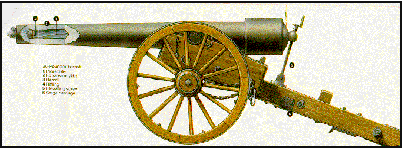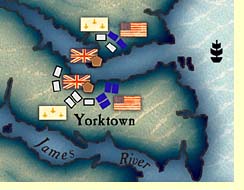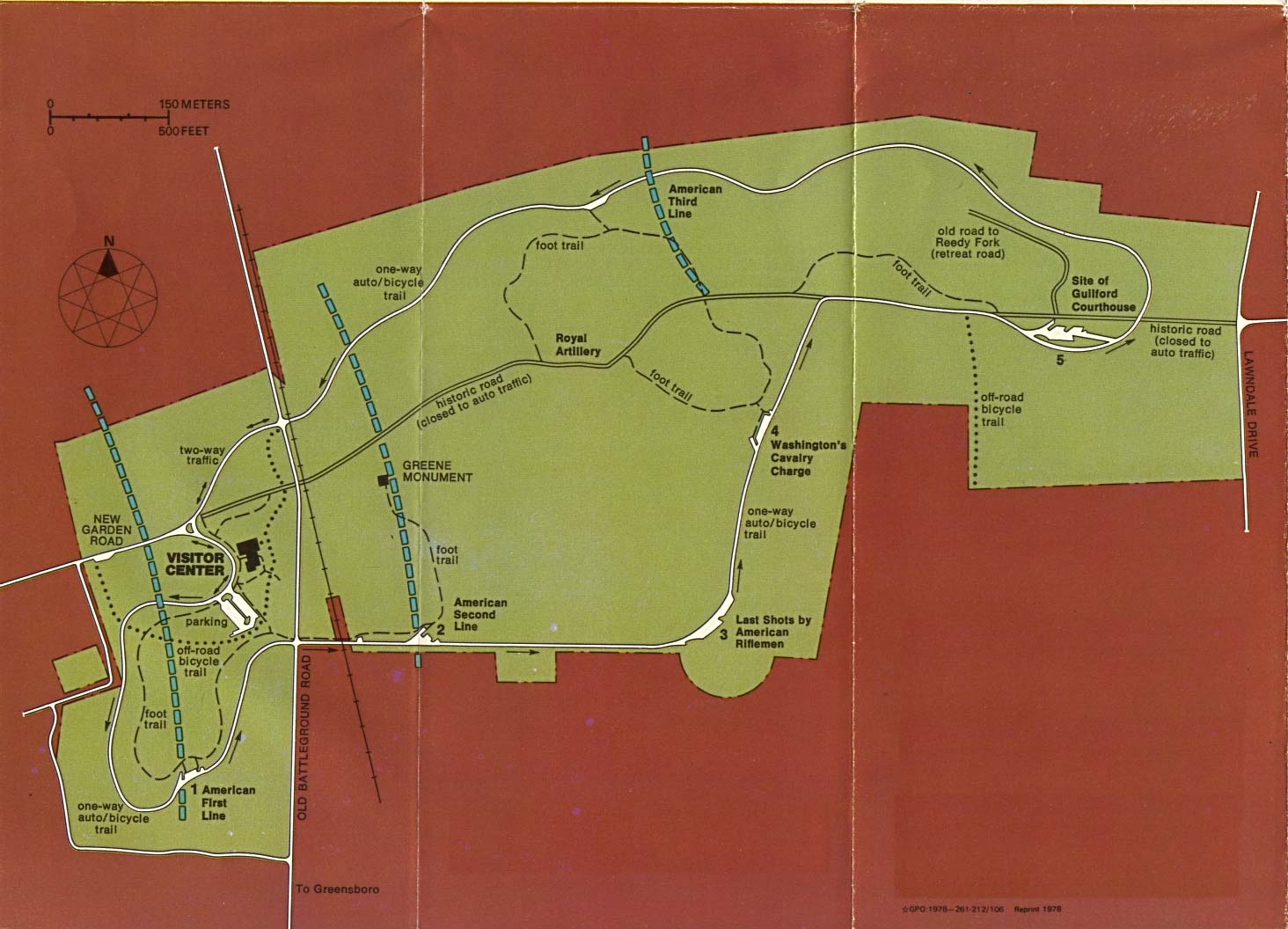The Battle of Kings Mountain

On October 7, 1780, in the rolling hills of northern South Carolina, a small army of men under the command of a British officer, Major Patrick Ferguson, was overtaken and defeated by a group that had been assembled from the farms and fields of southwest Virginia, North Carolina and the area that would become Tennessee. The American colonists had been waging a revolution against the crown of England for four years but victories had been few and far between. Had the British left well enough alone and let this struggle grind on a while longer, the colonists might soon have abandoned their dream of an independent nation. But they wanted to hasten the end of the conflict and decided upon a strategy that called for bringing the southern colonies under complete submission and rapidly pressuring the remnants of the rebel army from all sides. Maj. Ferguson had orders from Lord Cornwallis to lead his army of British trained Tories in a conquest of the inhabitants of the western Carolinas. Ferguson sent out the word that he was on his way and if the settlers wished to save their homes from his torch they would have to pledge their allegiance to the British crown. Having learned of this threat, the settlers prepared for action. They mustered their militia units and sent out a call for volunteers. Then having gathered their little army together and not being content to wait for trouble to come to them, they set out to look for it, and Ferguson. They caught up with him on that day in October of 1780. He had positioned his army along the top of a long wooded hill known as King’s Mountain. The colonists surrounded the hill and launched a fearless attack up the southern slope. Their courage was met by deadly musket volleys and bayonet charges into their ranks as they scaled the hillside. But they were able to use the high ground held by the enemy against them by keeping the Tories in a crossfire and they soon were swarming over the enemy encampment. Maj. Ferguson was killed along with many of his troops and the remaining Tories were taken prisoner. It was a total and decisive victory. The victory at King’s Mountain not only put an end to the British conquest of the western colonies but it breathed new life into the revolution. As people learned of what took place on that long, wooded hill out on the frontier, they rallied once more around their leaders and renewed the struggle for independence.
18 year old Frederick Fisher was part of the Virginia Militia from Washington Co. He was “severely wounded” at King’s Mountain. One account stated that he was shot in the leg as he was charging the hillside. He was unable to run to escape the bayonet charge that followed the rifle volley and tried to hide by rolling into a thicket of brush. One of the charging Tories discovered him and he was stabbed with a bayonet as well as shot in the leg. These wounds resulted in a state of disability for the remainder of his life and a pension from the state of Virginia and later the United States.
John Loggins had already served in the Continental Army from Virginia and been wounded at the battle of Hanging Rock in the Waxhaws region. He had been allowed to return to his home in Halifax Co. Virginia while his wounds healed. A short time later a call for volunteers was issued and John found himself marching under the command of a Col. Cleveland. Their objective was to join forces with other companies and go after Ferguson.
The following is a first hand account of the Battle of King’s Mountain written by Benjamin Sharp, another militiaman from Washington Co. Virginia.
“As well as I can remember, some time in August, in the year 1780, Col. McDowel of N. Carolina, with three or four hundred men, fled over the mountains to the settlements of Holstein and Watauga, to evade the pursuit of a British officer by the name of Ferguson, who had the command of a large detachment of British and Tories. Our militia speedily embodied, all mounted on horses, the Virginians under the command of Colonel William Campbell, and the two western counties of North Carolina (now Tennessee) under the Colonels Isaac Shelby and John Sevier, and as soon as they joined McDowel, he recrossed the mountains and formed a junction with Colonel Cleveland, with a fine regiment of North Carolina militia. We were now fifteen or eighteen hundred strong , and considered ourselves equal in number, or at least a match for the enemy, and eager to bring them to battle; but Colonel McDowel, who had the command, appeared to think otherwise, for although Ferguson had retreated on our crossing of the mountains, he kept us marching and counter-marching for eight days without advancing a step towards our object. At length a council of the field-officers was convened, and it was said in camp, how true I will not pretend to say, that he refused in council to proceed without a general officer to command the army, and to get rid of him, the council deputed him to General Green, at headquarters, to procure a general. Be this as it may, as soon as the council rose Colonel McDowel left the camp and we saw no more of him during the expedition.
As soon as he was fairly gone the council reassembled and appointed Colonel William Campbell our commander, and within one hour we were on our horses and in full pursuit of the enemy. The British still continued to retreat, and after hard marching for some time, we found progress much retarded by our footmen and weak horses that were not able to sustain the heavy duty. It was then resolved to leave the foot and weak horses under the command of captain William Neil, of Virginia, with instructions to follow as fast as his detachment could bear. Thus disencumbered we gained fast upon the enemy. I think on the seventh day of October, in the afternoon, we halted at a place called the Cow Pens, in South Carolina, fed our horses and ate a hearty meal of such provisions as we had procured, and by dark mounted our horses, marched all night and crossed the Broad River by the dawn of the day, and although it rained considerably in the morning, we never halted to refresh ourselves or our horses. About twelve o’clock it cleared off with a fine cool breeze. We were joined that day by Colonel Williams, of South Carolina, with several hundred men who informed us that they were just from the British camp, that they were posted on the top of King’s Mountain, and that there was a picket-guard on the road not far ahead of us. These men were detained least they should find means to tell the enemy of our approach, and Colonel Shelby, with a select party undertook to surprise and take the picket; this he accomplished without firing a gun or giving the least alarm, and it was hailed by the army as a good omen.
We then moved on and as we approached the mountain the roll of the British drum informed us that we had something to do. No doubt the British commander thought his position was a strong one, but the plan of our attack was such as to make it the worst for him he could have chosen. The end of the mountain to our left descended gradually to a branch; in front of us the ascent was rather abrupt and to the right was a low gap through which the low road passed. The different regiments were directed by guides to the ground they were to occupy, so as to surround the eminence on which the British were encamped; Campbell’s to the right, along the road; Shelby’s next to the left of him; Sevier’s next, and so on till last the left of Cleveland’s to join the right of Campbell’s, on the other side of the mountain at the road.
Thus the British major found himself attacked on all sides at once, and so situated as to receive a galling fire from all parts of our lines without doing any injury to ourselves. From this difficulty he attempted to relieve himself at the point of the bayonet, but failed in three successive charges. Cleveland, who had the farthest to go, being bothered in some swampy ground, did not occupy his position in the line until late in the engagement. A few men, drawn from the right of Campbell’s regiment, occupied this vacancy; this the British commander discovered, and here he made his last powerful effort to force his way through and make his escape; but at that instant Cleveland’s regiment came up in gallant style; the colonel, himself, came up by the very spot I occupied, at which time his horse had received two wounds, and he was obliged to dismount. Although fat and unwieldy, be advanced on foot with signal bravery, but was soon remounted by one of his officers, who brought him another horse. This threw the British and Tories into complete disorder, and Ferguson seeing that all was lost, determined not to survive the disgrace; be broke his sword, and spurred his horse into the thickest of our ranks, and fell covered with wounds, and shortly after his whole army surrendered with discretion. The action lasted about one hour, and for most of the time was thick and bloody.
I cannot clearly recollect the statement of our loss, given at the time, but my impression now is that it was two hundred twenty five killed, and about as many, or a few more, wounded; the loss of the enemy must have been much greater. The return of the prisoners taken was eleven hundred and thirty three, about fifteen hundred stand of arms, several baggage wagons, and all their camp equipage fell into our hands. The battle closed not far from sundown, so that we had to encamp on the ground with the dead and wounded, and pass the night among groans and lamentations.”


